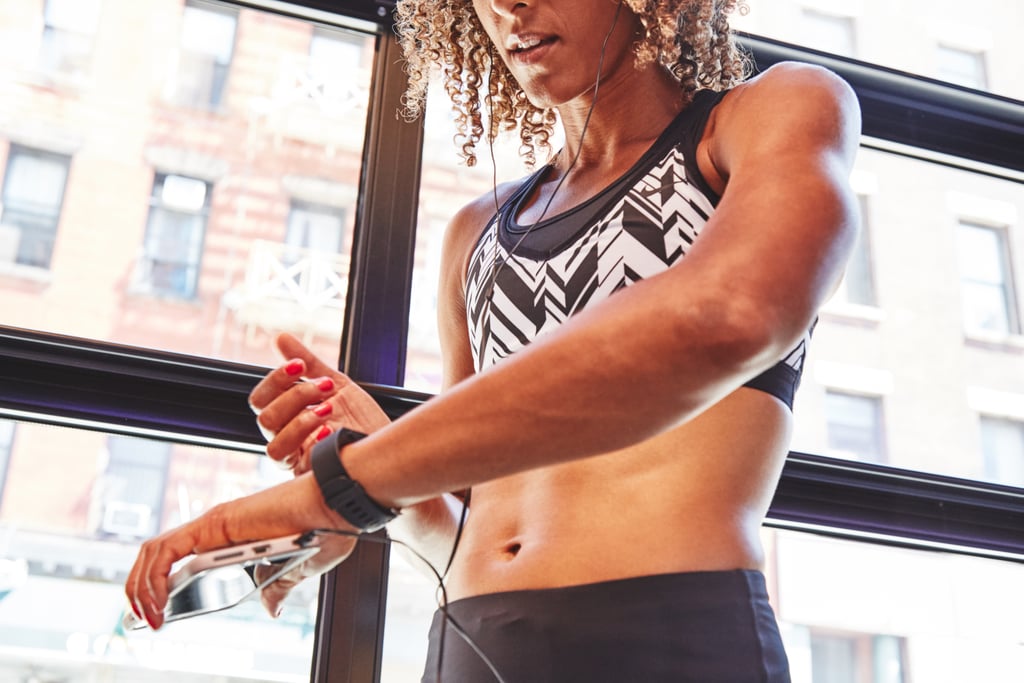Don't trash your well-loved fitness tracker just yet! RD Julie Upton, cofounder of Appetite For Health, shares five ways your tracker can actually help with dropping pounds.
A recent study published in the Journal of the American Medical Association reported that overweight participants in a diet study who wore fitness trackers actually lost less weight, compared to those who followed the same diet and exercise plan, albeit without any wearable monitoring devices.
While the dieters wearing trackers lost 7.7 pounds in two years, those who didn't have fitness monitors lost 13 pounds. Even though previous research has reported that wearable technology can motivate people to help them lose weight, the authors of this study point out that those studies were short-term and had limited participants.
If you live by the data from your Fitbit, Jawbone, or other device, here are five ways to use it to help you peel off pounds:
According to registered dietitian James Stevens, MS, RD, "Even though trackers easily show you how many calories you've burned, they can't tell you the other side of the energy balance equation — how many calories you've eaten. You need to pay more attention to the 'calories in' portion of the equation to see the scale budge. Just one or two poor food choices can negate all the extra calories burned from exercise." Instead, use non-food "rewards" to celebrate success, like a mani/pedi, reading a chapter in a new book, taking a long bath, downloading new music, or sleeping in!
A recent study published in the Journal of the American Medical Association reported that overweight participants in a diet study who wore fitness trackers actually lost less weight, compared to those who followed the same diet and exercise plan, albeit without any wearable monitoring devices.
While the dieters wearing trackers lost 7.7 pounds in two years, those who didn't have fitness monitors lost 13 pounds. Even though previous research has reported that wearable technology can motivate people to help them lose weight, the authors of this study point out that those studies were short-term and had limited participants.
If you live by the data from your Fitbit, Jawbone, or other device, here are five ways to use it to help you peel off pounds:
Focus on Food First, Exercise Second
When it comes to losing weight and keeping it off, studies consistently show that diet is more important than exercise. In fact, trying to lose weight through exercise alone is a lousy idea because food packs in so many many calories relative to what you burn off from exercise. And, when it comes to behaviors associated with weight loss, frequent weigh-ins, limiting or avoiding alcohol, and monitoring what you eat are three common keys to success.Avoid Food Rewards
How many times have you rewarded yourself after noticing how many steps you had or how many calories you burned? Speaking to NPR, the lead researcher of the JAMA study, John Jakicic, PhD, explained: "People would say, 'Oh, I exercised a lot today, now I can eat more.' And they might eat more than they otherwise would have."According to registered dietitian James Stevens, MS, RD, "Even though trackers easily show you how many calories you've burned, they can't tell you the other side of the energy balance equation — how many calories you've eaten. You need to pay more attention to the 'calories in' portion of the equation to see the scale budge. Just one or two poor food choices can negate all the extra calories burned from exercise." Instead, use non-food "rewards" to celebrate success, like a mani/pedi, reading a chapter in a new book, taking a long bath, downloading new music, or sleeping in!





0 التعليقات: